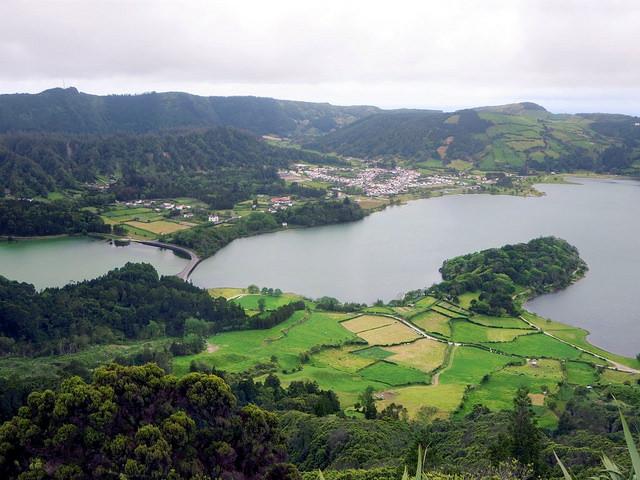
Representatives of Brazil’s soy industry, local NGOs and nearly two dozen large international companies are rounding the corner in an agreement to incentivize Brazilian soy farmers to end, or at least severely scale back, deforestation across the all-important Cerrado. Instead of continuing their deforestation efforts to maximize crop yields (and thus profits), farmers would be paid by the coalition to use the Cerrado land they have already converted to pasture land.
Brazil’s soy industry, advocated through its trade associate ABIOVE, teamed with Brazilian NGOs to form the Cerrado Work Group (GTC, its Portuguese acronym) in 2016 to fight the rising rates of deforestation in the ecologically rich Cerrado. Together, they published the Cerrado Manifesto, casting a net for greater conservation action and getting bites from the likes of McDonald’s, Unilever, Tesco and a host of other international retailers as well as major players in the meat and soy industries.
These companies signed a statement of support, and the GTC set a lofty goal of getting an agreement in place by the end of 2018. As 2018 draws to a close, it had appeared that the odds that a deal could be worked out were slim - but now, hope remains.
The GTC and the international companies have made great headway recently, devising a strategy hoping to once and for all incentivize farmers to wean away from deforestation as a means to increase their business. To no surprise, the barrier has always been financial. Why should a farmer not expand his or her pasture land and sacrifice the opportunity to make money, particularly when his or her neighbors are getting ahead using the same environmentally unsustainable practices? Why should the farmer care about the future consequences of depleting the Cerrado when he or she needs to feed his or her family tomorrow?
The group’s developing agreement aims to defy these questions by providing farmers with cash incentives to not sprawl further into the Cerrado. Under the terms of the agreement, the international companies would pool their money to create an incentives package - and ABIOVE’s decision to match the contributions would only sweeten the pot. Environmental NGOs would then be tapped to help expand this fund by encouraging various stakeholder groups and impact investors, who have long sought such a collaboration, to chip in.
NGOs would then target farmers and assist in properly implementing this incentives package. They would likely also be tasked with monitoring companies’ supply chains, ensuring deforestation doesn’t crop up in any forms along the chain.
The benefits would extend to all levels. Farmers’ wages remain steady while they don’t incur neither the financial cost nor physically backbreaking toll of deforestation. Soy traders nudge closer to achieving their deforestation commitments. The international companies investing in this incentive receive a lifetime of kudos for their historic preservation efforts. And, as The Nature Conservancy puts it, “Fast Moving Consumer Goods companies would get to meet their promise to consumers who increasingly see soy as the next palm oil.”
The biggest winner, however, is all of us. The Cerrado is immeasurably important - with its size larger than the United Kingdom, France and Germany combined, this region, a mixture of savanna, woodlands and forest, is home to more than 10,000 plant, 900 bird and 300 mammal species. The Cerrado’s paramount size absorbs and sequesters much of the world’s carbon and its preservation, along with Brazil’s Amazon, can significantly slow down climate change.
But the Cerrado has also been the textbook example of the adverse effects associated with agribusiness. Laws and regulations in the rainforest have pushed former Amazon opportunists to seek solace in the vaguely regulated Cerrado, where they have moved fast to develop it at a financial gain.
The Nature Conservancy says that beyond taking crucial steps needed to preserve the Cerrado, this agreement would provide an example where collaboration between the private sector and other key stakeholders could benefit the environment at no cost to the potential business gains.
The article reads (to be read, as I see it, in an inspiring tone):
More than anything, it would be proof that emerging market countries like Brazil do not face a zero-sum choice between development and conservation: there is a middle way. The ball is in the private sector’s court now. Let’s hope that everyone, across the supply chain, understands the scale of the opportunity we have in the Cerrado. Quite simply, it would be the biggest thing anyone could do in the deforestation space right now. It’s time for all the market actors to step up and make this vision a reality.Considering Brazil’s current political climate, it would be positive step forward to ring in the new year with a toast of champagne, celebratory “2019” glasses and finally, optimism that the GTC and international companies have put their money where their mouths, at the moment, appear to be when it comes to the Cerrado .
Image credit: David Stanley/Flickr
Based in Atlanta, GA, Grant is a nonprofit professional and freelance writer passionate about affordable housing and finding sustainable approaches to international development. A proud graduate of the University of Maryland, Grant spent four months post-grad living in Armenia where he worked for Habitat for Humanity and the World Food Programme. He enjoys playing trivia with friends but is still seeking his first victory - he ceaselessly blames his friends lack of preparation.














